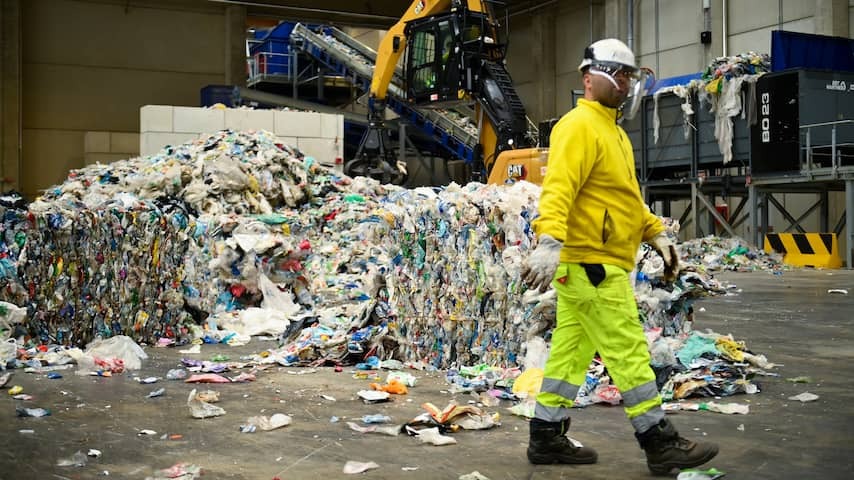
The plastic sector supports a new levy on the use of virgin plastic in consumer products, including clothing and electronics. This should make it more attractive to use recycled plastic or bio-based plastics.
The ‘circular leverage’ for textiles and building materials could be in place from 2027, according to the industry and environmental organizations that devised the plan. In the years that follow, other product categories should follow.
The business community sat down with environmental groups and the government to devise an alternative to another plastic tax, which was recently scrapped by the (now caretaker) Schoof cabinet. That would apply to producers of fossil polymers – the building blocks of plastic.
The tax was intended to help struggling Dutch plastic recyclers by making their products more attractive. But producers of fossil plastic feared that production would mainly move abroad. They already face fierce competition from cheap fossil plastic from the United States and China.
Caretaker Climate Minister Sophie Hermans therefore decided to scrap this plastic tax. A plastic standard, which would oblige plastic processors to use more and more recycled material, was also scrapped. Hermans instructed the sector to come up with alternatives themselves.
Polyester T-shirt more expensive
One of the proposals supported by the so-called ‘plastic table’ is a new levy on plastic products sold in the Netherlands. This concerns, for example, items of clothing, even if they are made abroad.
According to an example calculation published in the final report of the plastic table, a T-shirt made of 100 percent polyester could become 3 euros more expensive as a result. If two-thirds of the material used is recycled, the levy is only 1 euro. A fully sustainable garment is completely exempt.
It is up to politicians to further elaborate the exact interpretation of the leverage, says Marije Perdon of the sustainable business network MVO Nederland. According to her, the levy could also be made lower for products that are themselves easily recyclable.
She speaks of a “game changer” for the sale of plastics: “For the first time we have an instrument that makes the polluter pay.” According to Perdon, the levy could yield tens or even hundreds of millions of euros annually, which should flow back into the circular industry.
Taxing the plastic content of products will be possible from 2027 because the EU will then introduce a ‘digital product passport’. This will include information about the materials used. The passport will be introduced in 2027 for textiles and building materials, in 2028 for furniture and consumer electronics, and in 2029 for mattresses. Together, these categories account for almost half of Dutch plastic consumption.
No alternative to higher waste tax
In addition to the new levy, the plastic sector wants to take other measures to stimulate recycling. For example, a group of twenty companies, including Albert Heijn, Coca-Cola, Nestlé and Unilever, promises to voluntarily use more sustainable plastic. In total, this concerns 115,000 tons per year, enough to save 265,000 tons of CO2.
Hermans had also commissioned the plastic table to find an alternative to the 567 million euros that the original plastic tax should have yielded annually. But this has not been successful, because the levy supported by the plastic sector would not generate money for the treasury. According to the industry, these revenues should flow back into a fund for the circular industry.
The caretaker cabinet now wants to pass the bill on to the waste industry. Waste companies warn that households will therefore pay considerably more for the collection and processing of their waste.